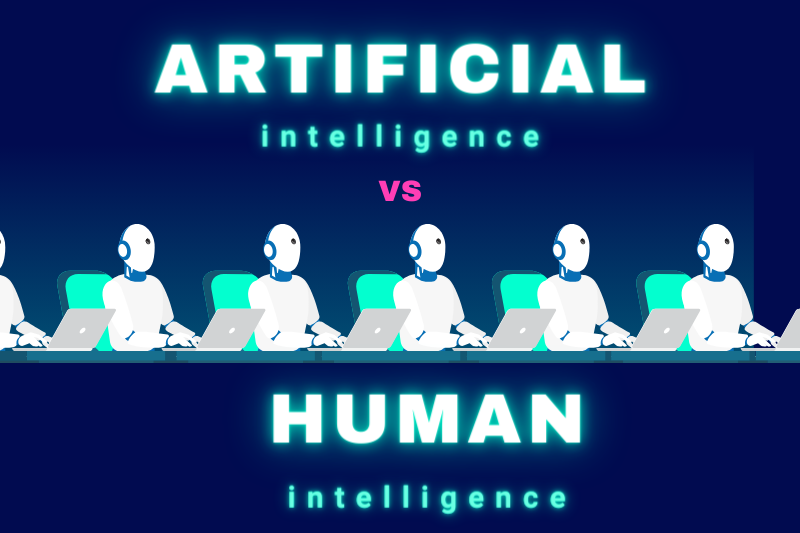Artificial intelligence (AI) has increased the speed and efficacy of completing tasks that would take longer human time. AI has achieved autonomous competency to perform activities similar to the human brain but by exploiting computing efficiencies that are more precise to human proficiency. Cognitive science argues that consciousness is a product of a deterministic activity of brain activities. AI can influence and interfere with the human mind and cause devastating ethical outcomes. AI dumber individuals by interfering with the brain’s cognitive activity and altering how people process and exploit information to create knowledge that sustains human intelligence.
The Influence of AI on Reading and Research Habits
AI has altered reading cognitive concentration habits and influenced the way people search and exploit information to create solutions. Sehgal indicates that the dizziness associated with extracting information from the Internet has resulted in a different reading style. Instead of focusing on details to understand a subject and create flawless knowledge, researchers read with constant distractions that make superficial content comprehension. Technology induces the “intellectual decay in our brains. It’s a provocative and even counterintuitive claim but one that he backs up with ample findings from neuroscience” (Sehgal). The quote argues that AI causes the decline of human intellect by dissuading researchers from engaging in detailed experimentation with knowledge because the mind remains distracted by believing in shallow information.
Google’s Impact on Cognitive Functioning
Google interferes with the human brain systems and influences its activities with the capacity to manipulate and distract individual activity while researching online. Sehgal claims that research shows that people who conduct Google searches are liable to experience heightened prefrontal cortex activity. The assertion indicates that the selective process dorms other parts of the brain since the entire central nervous system shares energy. Exposure to different activities, such as hyperlinks and other adverts, also interferes with the optimum functioning of the cognitive system when researching online (Sehgal). The redirection of mental resources to the reading of distracting words and images makes an individual less effective in absorbing information. Moreover, the constant need to make quick decisions interferes with the comprehension and retention of information. Interacting with Google alters how working and long-term memory relate to retaining facts and organizing concepts for easy cognitive loading capability.
AI’s Effect on Creativity and Memory
Google impedes creativity because the AI promotes a shallow way of understanding and analyzing content, which needs more participation of the critical inner faculties for creating cognitive schemas that stimulate long-term memory. Sehgal indicates that AIs have dumber humans because experiments show that “we become mindless consumers of data.” Therefore, retention of information is shallow when a person reads online compared to reading a book. Sehgal compared extracting information from a book to filling long-term memory with small pieces of information that are coherently stored for later retrieval. On the contrary, online experience presents a problem of trying to master information from different unconnected sources, creating incoherent mind schemas that are difficult to interpret and interconnect. A person reading a book will take time to go through the pages to understand the content, while an online reader will likely skim through the pages shallowly. In addition, online distractions reduce the concentration of the online researcher and impede the mental faculties from interpreting the presented information into memorable knowledge.
The Threat of AI to Human Independence and Behavior
AI can communicate with the brain and influence human behavior and cognitive activities, which threaten the independence of the species. The survival of human intelligence is threatened by the progressive development of AI, especially because the exponential growth will outstrip human limitations. Research asserts that AI uses elaborate mechanisms like the human brain, a “deterministic information-processing device with distinct algorithms and modules.” The information clarifies the fact that the human brain is susceptible to foreign control and manipulation that present ethical concerns. Sehgal shows that Google, a form of AI, has altered his way of thinking and reading. The human brain seems to have adapted to Google’s algorithm for searching and digesting information. Due to the overwhelming catalog of available data, people tend to learn shallowly because they have much to go through.
Moreover, the human brain is “infinitely malleable. People used to think that our mental meshwork, the dense connections formed among the 100 billion or so neurons inside our skulls, was largely fixed by the time we reached adulthood” (Carr). Neuroscientists indicate that the brain is highly plastic because new nerve cells continually break old connections and design new ones that reprogram and alter cognitive functioning (Carr). Repetitive activities like exposure to AIs rewire the brain neurons at the biological level and compel the brain to adapt by altering its functions.
The Economic and Social Implications of AI Development
AI-development dynamics asserts that the AIs can quickly remodel and readjust to fit every possible differential need. The exponential growth rate in intelligence will enhance AIs to redesign their functions at will. Tomasik asserts that the market-leading companies optimize AIs to fit their market interests, which means that the machines will learn and adapt to new behaviors that will influence or interfere with people, “This isn’t intelligence; it’s just people using computers to manipulate data and perform optimizations, and they dress it up as ‘AI’ to make it sound sexy” (4). The singularity of AI means that the design of AIs will match their capacity to take instruction and subtly predict and determine human behavior. The economic underpinnings that control the AIs’ acquisition funding work to maximize corporate profit while diminishing social interests. Shareholders of AI designing companies determine the models of AIs, “while AI will greatly increase GDP in the coming decades, the benefits of these increases will favor the few versus the many” (Anderson, Rainie, and Luchsinger 58). AI is an optimized machine that seeks to control human behavior and influence decisions. Therefore, IA can easily control the human brain by following the orders of the shareholders with a predetermined goal of making profits.
The Transformation of Human Identity and Culture through AI
Human dependency on artificial intelligence and devices shapes new personalities differently from authentic people. People prefer their online identity and use the Internet’s network in the web to talk about their fictitious lives. Rather than conversing with present persons, interconnected individuals prefer virtual communications with online friends who know the online identity that contains unreal and biased information that only displays pleasurable moments. AIs are molding culture and disrupting the human aspect of connecting with the social environment. Carr claims that people will become “pancake people,” a term that refers to people who depend on AIs for life skills. The dependence on biased information interferes with the clarity of human intelligence and makes people dumber. Moreover, AIs influence knowledge creation, comparable to deficient education based on foreign interests. In the future, people will refrain from having meaningful engagements in virtual social spaces because AIs will easily impersonate anyone by exploiting the available personal data.
The Trade-Off of Human Autonomy for AI Convenience
Consistent use of AI impedes individual autonomy to evolve and engage in tasks without depending on the technology. People have traded off their control over life to the trusted computerized efficiency embodied in most artificial narrow intelligence (ANI) tools (Anderson, Rainie, and Luchsinger 11). For example, AIs have started performing general factory-floor assembly activities, threatening to replace modern workers. The trade-off has resulted in people losing the sense of urgency when engaging in work-related or research duties because they believe and trust that AI provides precise answers. Researchers warn against the unguided addiction to AIs, “People’s blind dependence on digital tools is deepening as automated systems become more complex and ownership of those systems is by the elite” (Anderson, Rainie, and Luchsinger 12).
Consequently, individuals will only strive for knowledge and skills to create solutions, even at the basic level, because they think AIs will provide all the answers. Alexandridis indicates that AIs threaten human autonomy because once integrated into human life, the dependence on AI structures will force people to sacrifice their independence for convenience (Anderson, Rainie, and Luchsinger 8). People will depend on networks with negative challenges, like cyber attacks that can force an AI to misbehave to the hacker’s advantage. Consequently, it may become extremely expensive to depend on the digital infrastructure without security measures with the capacity to monitor and report on every suspicious activity.
The Ethical Dilemma of AI Understanding Human Emotions
AI promises to change human life positively if the machines can understand ethics and act within a set of rules as human beings do. Shareholders of companies that create AIs are looking for solutions that can make AI better at understanding human emotions, but the phase is still in its infancy. The public has yet to start participating in the making of policies regarding the use of AIs, which threatens the human race because AIs have the potential to carry nuclear and weapons of mass destruction that endanger life (Tomasik 6). The arms race dynamics will likely intensify with the improving AI development, making many nations powerful in using advanced technology to deter or subjugate other states. The best robotic algorithms use evolutionary mathematics that duplicates the human cognitive system, which emphasizes the possibility of optimizing mass-produced troops with advanced general intelligence to engage in battle with the enemy. Therefore, creating robots that understand a true and absolute ethical course of action remains a dilemma because AIs are coded to read from a biased position of the creators. The internal mechanisms are vulnerable to interpreting human emotions wrongly because people have different ways of expressing feelings.
Conclusion: The Duality of Artificial Intelligence
Artificial intelligence is responsible for the dumbness witnessed in current humanity as people depend on AIs to generate and create knowledge, resulting in the decay of human intelligence. AIs like Google influence how people seek, organize, and interpret data to create information, which means they create biased knowledge. The perverseness of technology on people’s lives will increase and threaten privacy and communications that are critical for the human being. The growth of AI threatens to subjugate human intelligence and challenge people’s capacity to participate in the modern techno-determined space. Astonishing leaps in creating predictive analytics of human behavior present an inevitable challenge in influencing people’s conduct and activities without seeking acknowledgment, which pervades the communication systems and social spaces. Therefore, people have traded their independence for the convenience of AIs without understating the devastating effects of the systems on the brain and memory, like altering the cognitive system’s functions






Leave a Reply